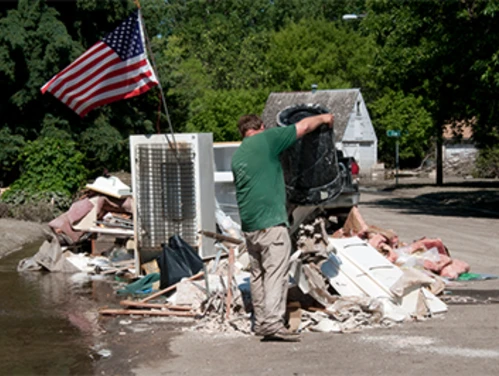On this page...
Recovering from a flood event is difficult emotionally and financially. Determining what to do first may be overwhelming. The following information provides basic guidelines on what to do after a flood.
Back to topPhysical, Mental and Material Recovery
Physical Recovery - Staying Healthy
- Iowa Concern Hotline - 1-800-447-1985
- CDC: What to do to Prevent Getting Hurt or Sick After a Flood
- CDC: Keep Food Safe After a Flood
- CDC: Protect Yourself from Flood Hazards
Mental Recovery - Emotional Impact of Flooding
- Iowa Concern: A Source of Help for Iowans in Need
- Disaster Distress Helpline
- Ready.gov: Helping Children Cope with a Disaster
- Exploring Strategies for Coping with a Flood
- Helping Disaster Victims Bounce Back - Bounce Back Now Free App
Material Recovery
Mold Remediation
Resources for Agriculture Community
- Flood Recovery on a Farm
- Farming After the Flood
- Salvaging Flood Damaged Agricultural Buildings
- Flooding and Stored Grain
Financial Assistance
- Emotional & Financial Toolkit
- FEMA: Filing a Flood Insurance Claim
- FEMA: Flood Insurance Manuals and Handbooks
How to Avoid and Report Scams After a Disaster
Back to topRepairing Your Home
- Equipment for Entering and Cleaning Flood-Damaged Property
- Well Water Safety After Flooding
- FEMA: Returning Home After a Flood
- Red Cross: Disaster Cleanup and Repair for Your Home
- The FEMA Building Science Branch provides guidance that focuses on creating disaster-resilient communities to reduce loss of life and property.
Follow the law
After a flood, state and local regulations and permitting requirements must be followed. These requirements are in place to ensure you stay healthy and rebuild safely.
- Iowa County Websites
- Iowa HHS: Disaster Recovery Resources
- Iowa DNR: Environmental Guidance for Flooding
- Electrical Safety During Flooding
